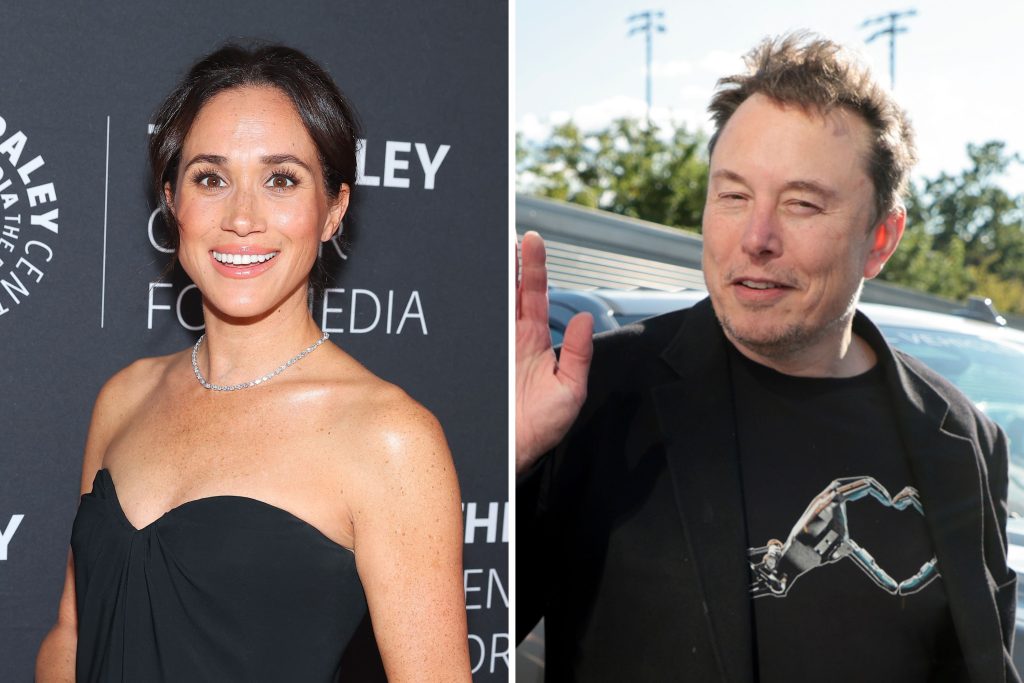Elon Musk’s recent foray into British politics, marked by calls for a general election and criticism of Prime Minister Keir Starmer, has exposed his considerable unpopularity in the UK. Polling data reveals a net approval rating of minus 51, placing him even lower in public esteem than Meghan Markle, the Duchess of Sussex. This deep unpopularity, encompassing not just the left but also a significant portion of Conservative Party supporters, suggests Musk faces an uphill battle in influencing British political discourse. His association with Donald Trump, while potentially amplifying his message through certain media channels and his own platform X (formerly Twitter), may further alienate the British public. The trajectory of Meghan Markle’s attempts to reshape public perception of the British monarchy offers a cautionary tale for Musk. While initially sparking debate on important issues, her increasing criticism of the royal family ultimately led to a decline in public support, rendering her efforts largely ineffective. Musk’s similar pattern of criticism, combined with his low approval ratings, raises questions about his long-term impact on British politics, particularly with the next general election still years away.
Musk’s unpopularity in the UK extends across the political spectrum. While he enjoys slightly more favorable views among supporters of the Reform Party, a right-wing party, even there his approval has declined following his public criticism of party leader Nigel Farage. This broad disapproval limits his potential influence and suggests that his interventions in British politics may be met with skepticism, regardless of their content. His recent focus on a decade-old scandal involving child grooming gangs, while raising legitimate concerns, has been intertwined with attacks on Starmer’s past role as director of public prosecutions. This strategy, seen by some as politically motivated, may further damage his credibility in the eyes of the British public, reinforcing the perception of him as an outsider interfering in domestic affairs. The lack of evidence linking Starmer to any wrongdoing in the handling of the scandal further weakens Musk’s position, potentially casting him as a purveyor of misinformation rather than a genuine advocate for justice.
The timing of Musk’s interventions also plays a crucial role in their potential impact. With the next general election not scheduled until 2029, his current efforts may prove premature. Public attention spans are notoriously short, and the issues he’s highlighting now may fade from public consciousness long before the next election cycle. Furthermore, the political landscape in the UK is constantly shifting. Current polling data showing a surge in support for the Reform Party could easily reverse in the coming years, rendering Musk’s focus on Starmer less relevant. His current strategy appears to be based on the assumption that Starmer will remain Prime Minister until 2029, a scenario that is far from guaranteed. Without a sustained and targeted campaign, Musk’s current pronouncements risk becoming little more than fleeting moments of controversy, ultimately failing to achieve any lasting political change.
Comparing Musk’s situation to that of Meghan Markle further highlights the challenges he faces. Markle, despite initially generating significant public interest and sparking important conversations, ultimately saw her influence wane as her criticisms of the royal family intensified. This suggests that a confrontational approach, even when addressing legitimate concerns, can backfire if it alienates the very public whose support is needed for meaningful change. Musk appears to be following a similar path, criticizing not just the government but also prominent political figures like Starmer and Farage. This strategy, combined with his already low approval ratings, may lead to a similar outcome, where his voice is increasingly marginalized and his impact on public opinion diminishes over time. The British public, like any other, is more likely to respond positively to constructive engagement than to aggressive attacks, particularly from individuals perceived as outsiders.
The specific context of Musk’s criticisms also raises concerns about their effectiveness. His focus on the child grooming scandal, while important, risks being perceived as opportunistic and politically motivated, given his simultaneous calls for a general election. This perception is further fuelled by reports of his discussions regarding the possibility of removing Starmer from office before the next election. Such maneuvering, even if well-intentioned, can easily be interpreted as meddling in British politics by a foreign national, potentially undermining the legitimacy of his concerns. The lack of concrete evidence linking Starmer to any wrongdoing in the grooming scandal also weakens Musk’s position, making it appear as though he is exploiting a sensitive issue for political gain. This perception could further damage his credibility and reduce the impact of his interventions.
Ultimately, Musk’s success in influencing British politics hinges on his ability to connect with the British public. His current low approval ratings and confrontational approach suggest a disconnect between his message and the sentiments of the majority. If he aims to achieve lasting change, he needs to reconsider his strategy, focusing on building credibility and engaging with the public in a more constructive manner. Simply amplifying his message through his platform X or relying on his association with Donald Trump is unlikely to sway British public opinion. Instead, he needs to demonstrate a genuine understanding of British concerns and a willingness to engage in respectful dialogue. Without such a shift, his pronouncements on British politics are likely to remain largely ineffectual, dismissed as the pronouncements of an outsider with little understanding of, or respect for, the British political landscape.










